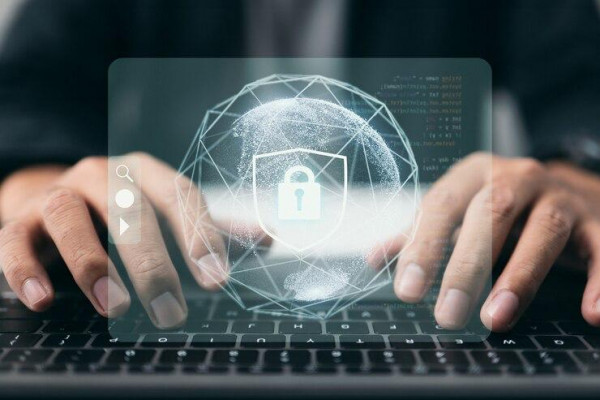As businesses become increasingly digital, safeguarding sensitive data and systems has never been more critical. The reliance on technology opens new opportunities for growth and innovation but also exposes organizations to sophisticated cyber threats. Cyber security is no longer just an IT issue—it’s a business imperative.
Comprehensive Cyber Security services empower businesses to proactively defend against these threats, ensuring the protection of digital assets while enabling growth and innovation. By implementing cutting-edge strategies and adopting cyber security best practices, companies can secure their operations, build trust, and achieve long-term resilience.
Why Cyber Security Services Are Essential for Businesses
Every business, regardless of size or industry, is at risk of cyberattacks. From small startups to global enterprises, no organization is immune. The implications of cyber incidents are severe, including financial loss, operational downtime, reputational damage, and regulatory penalties.
Cyber security services offer organizations a multi-layered approach to protecting their digital ecosystem. These services include real-time threat detection, robust prevention measures, and rapid incident response, ensuring that businesses stay ahead of evolving threats.
A comprehensive cybersecurity strategy addresses key vulnerabilities, including:
- Gaps in employee behavior and awareness.
- Weaknesses in third-party systems and integrations.
- Emerging risks associated with advanced technologies like AI.
Organizations that invest in cybersecurity not only mitigate risks but also position themselves as trusted and responsible entities in the digital landscape.
How Cyber Security for Businesses Protects Digital Assets
Cyber security for businesses involves more than installing firewalls or antivirus software. It’s about creating a comprehensive framework that safeguards digital assets across all operational layers.
- Safeguarding Sensitive Data: Cyber security services ensure that confidential information, such as customer details, financial records, and intellectual property, remains protected from unauthorized access. Encryption, multi-factor authentication (MFA), and access controls form the foundation of data security.
- Ensuring Business Continuity: With cyberattacks like ransomware becoming increasingly common, cybersecurity measures help prevent disruptions and maintain operational stability. Regular backups, rapid recovery protocols, and business continuity planning minimize downtime and loss.
- Protecting Customer Trust: In an era where data privacy is paramount, customers expect businesses to handle their information responsibly. Effective cybersecurity fosters trust and enhances reputation, giving businesses a competitive edge.
The Value of Adopting Cyber Security Best Practices
Best practices are essential for building a robust cybersecurity posture. They provide a structured approach to identifying vulnerabilities, mitigating risks, and enhancing overall security.
- Prioritize Employee Training
Human error accounts for a significant portion of cybersecurity breaches. Employees may inadvertently fall victim to phishing attempts, click on malicious links, or misuse sensitive data. A culture of awareness and accountability is vital.
Best practices for training include:
- Conducting regular workshops on recognizing phishing and other social engineering attacks.
- Encouraging the use of strong, unique passwords combined with MFA.
- Simulating real-world attack scenarios to assess readiness and improve responses.
- Implement Continuous Monitoring
Threats evolve quickly, and static defenses are no longer sufficient. Continuous monitoring enables businesses to identify and address vulnerabilities in real-time. Automated tools and artificial intelligence enhance this capability, ensuring swift responses to potential breaches. - Strengthen Access Management
Implementing robust identity and access management (IAM) protocols ensures that only authorized users can access sensitive data and systems. Role-based access, regular reviews of permissions, and the integration of identity threat detection tools can significantly reduce the risk of insider threats and unauthorized access. - Regularly Audit Systems
Routine audits and vulnerability assessments help organizations stay ahead of threats. Penetration testing, software updates, and detailed reviews of existing defences are critical components of a secure infrastructure.
By adopting these practices, businesses can enhance their resilience and proactively defend against evolving threats.
The Role of Cyber Security Companies
For many organizations, managing cybersecurity in-house can be challenging due to resource constraints and the complexity of modern threats. Cybersecurity companies play a pivotal role in addressing these gaps, offering specialized expertise and state-of-the-art solutions.
Core Offerings of Cyber Security Companies:
- Real-Time Threat Detection and Prevention: Advanced tools monitor systems around the clock, identifying potential threats and neutralizing them before they cause harm.
- Incident Response and Recovery: Expert teams provide immediate support during breaches, minimizing impact and ensuring swift recovery.
- Custom Security Frameworks: Solutions are tailored to align with an organization’s specific risks, goals, and regulatory requirements.
- Scalable Solutions: As businesses grow, cyber security companies adapt their services to meet changing needs, ensuring consistent protection.
Partnering with a trusted cyber security company enables businesses to focus on their core objectives while leaving cybersecurity to the experts.
Emerging Trends Shaping Cyber Security Services
The cybersecurity landscape is rapidly evolving, with new technologies and challenges shaping the future of digital protection. Staying informed about these trends helps businesses anticipate risks and adapt their strategies effectively.
- AI and Machine Learning in Cybersecurity
Artificial intelligence (AI) is transforming cybersecurity by automating threat detection, improving incident response times, and enhancing risk assessments. While AI offers significant advantages, it also introduces new challenges, such as adversarial AI attacks. Businesses must use AI responsibly, balancing its benefits with robust safeguards. - Identity-First Security
With the rise of hybrid and remote work environments, traditional network-based security measures are becoming less effective. Identity-first security focuses on ensuring that only authenticated users can access systems, reducing risks associated with unauthorized access. This shift emphasizes the importance of IAM as a cornerstone of modern cybersecurity strategies. - Resilience-Focused Risk Management
Third-party systems and integrations often introduce vulnerabilities. Resilience-driven risk management involves creating contingency plans for high-risk engagements, such as incident playbooks and clear offboarding protocols. This approach ensures that businesses remain protected, even when third parties experience cybersecurity incidents. - Continuous Threat Exposure Management (CTEM)
Businesses increasingly prioritize CTEM programs to monitor, assess, and address vulnerabilities in real-time. These programs enable organizations to align security investments with the most pressing threats, significantly reducing the likelihood of breaches.
By understanding and embracing these trends, businesses can stay ahead of emerging risks and build a strong cybersecurity foundation.
Building Resilience Through Cyber Security Services
Resilience is at the heart of modern cybersecurity. It’s not just about preventing breaches but also ensuring that businesses can recover quickly and minimize disruption in the event of an incident.
Key Components of Cyber Resilience:
- Data Backups: Regularly backing up critical data and testing recovery protocols ensures that information can be restored quickly in case of ransomware attacks.
- Incident Response Plans: Clear protocols for detecting, containing, and addressing breaches minimize damage and enable faster recovery.
- Simulations and Drills: Conducting regular exercises prepares teams for real-world scenarios, improving their ability to respond effectively.
- Redundancy and Fail-Safes: Building redundant systems ensures operational continuity, even during cyber incidents.
Investing in resilience-driven cybersecurity measures ensures that businesses are not only protected but also prepared to thrive in the face of adversity.
The Financial Case for Cyber Security Services
While cybersecurity requires investment, the cost of inaction can be far greater. Data breaches result in financial losses, reputational damage, and legal penalties, all of which can have long-lasting consequences.
Comprehensive cybersecurity services help mitigate these risks by preventing incidents, minimizing recovery costs, and ensuring compliance with regulatory standards. For businesses looking to optimize their cybersecurity budgets, partnering with an experienced provider ensures maximum value and protection.
Conclusion
Cyber security services are no longer optional—they’re essential for protecting digital assets, maintaining business continuity, and building trust in a digital-first world. By adopting cyber security best practices, staying informed about emerging trends, and partnering with trusted cybersecurity companies, businesses can create robust defenses against ever-evolving threats.
In an age where cybersecurity challenges are complex and persistent, investing in comprehensive solutions is the key to long-term success. Safeguard your digital assets and empower your business to thrive with STL Digital’s advanced cyber security services.



